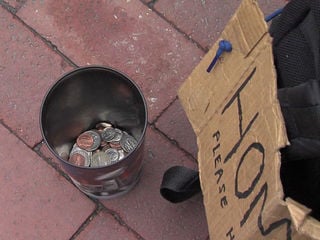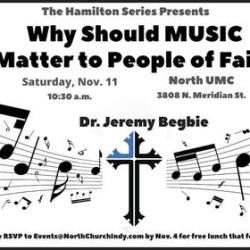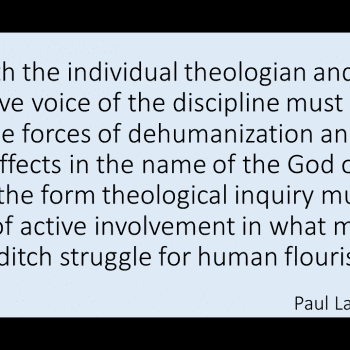Today was the second time I’ve seen it with my own eyes.
The first time was years ago in Edinburgh. Today it was in Indianapolis.
 I was passing a spot (in this case, the ramp of the 29th and 30th Street exist from I-65) where one almost always sees someone begging.
I was passing a spot (in this case, the ramp of the 29th and 30th Street exist from I-65) where one almost always sees someone begging.
I saw as one person who had been begging got into a car, and fist bumped the driver.
And I witnessed as another person came and took his place, with a sign almost identical to that of the departing beggar.
There may be panhandlers or beggars that are in genuine need. But clearly some people are running a scam. And so presumably there are better ways to make sure that your money gets to someone who genuinely needs it, than rolling down your window and giving something to a person with a sign at an intersection.
I remember drawing attention to this issue in a church in Romania when I lived there. Capitalism was new, and so was begging on streets and in trams. And so I was asked to talk about Christianity and capitalism or something like that. One of the things I got those present to do was calculate how much a well-known pair of gypsy children who played an accordion for money made. They would get on a tram, the brother would play and the sister would follow with a cup for money. Then they would get off at the next stop.
Someone present quickly calculated that the children would make more than he did in his current job.
We need to find ways of reducing if not indeed eliminating poverty. And this is another example of why the route of simply giving to others is not a real solution. While some people who are happy to take advantage of the generosity of others ask and receive, the people with real needs are may well be somewhere else, hidden from view, embarrassed to ask for help in that way. And yet they are the ones that we ought to be finding ways to help not merely by giving them spare change, or at least not only that, but by addressing the issues that have left them in dire straights in the first place.













